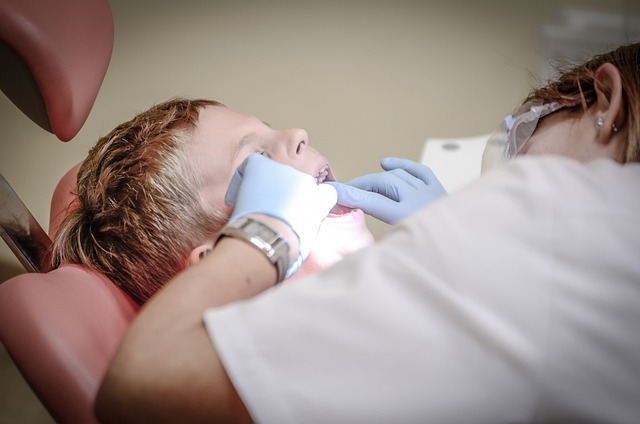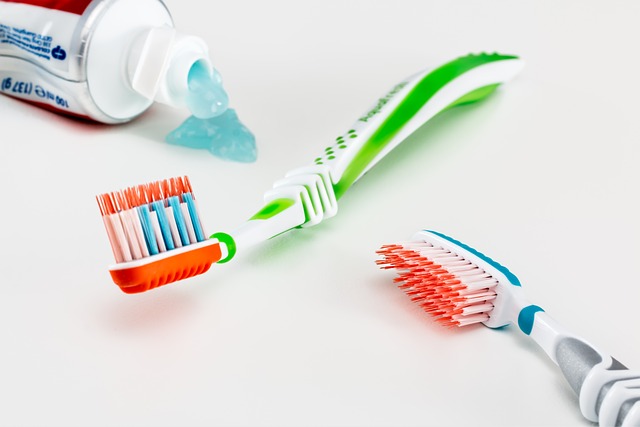Prepping for Tooth Extraction: Your Guide to Painkillers
Welcome to our informative guide on prepping for tooth extraction and painkillers! If you’ve been dreading the looming dental appointment due to the anticipated discomfort, worry no more. We’re here to provide you with all the crucial information you need to ensure a smooth and pain-free experience during and after your tooth extraction. In this friendly article, we’ll discuss the different types of painkillers available, their effectiveness, potential side effects, and tips on how to maximize their benefits. So, sit back, relax, and let us help you navigate your way to a painless journey towards a healthier smile!
1. Get Ready for Tooth Extraction: A Friendly Guide to Pain Management
Getting ready for a tooth extraction can be nerve-wracking, but with the right pain management techniques, you can help ensure a smooth and comfortable experience. Here are some friendly tips to help you prepare:
Talk to your dentist: Before the procedure, have a conversation with your dentist about your concerns and any questions you may have regarding pain management. They will explain the process and the options available to you, such as local anesthesia, sedation, or general anesthesia depending on the complexity of the extraction.
- Follow pre-extraction instructions: Your dentist may provide specific instructions to follow before the extraction, such as fasting for a certain period. Make sure to follow these guidelines to minimize the risk of potential complications during the procedure.
- Take over-the-counter pain relievers: Your dentist may recommend using over-the-counter pain relievers, such as ibuprofen or acetaminophen, prior to the procedure. Always consult with your dentist or pharmacist to ensure they are safe for you.
- Apply ice: To help reduce swelling and discomfort, you can gently apply an ice pack to the affected area for short periods, following your dentist’s recommendation.
Remember, proper pain management is crucial for a successful tooth extraction experience. By discussing your concerns with your dentist and following their instructions, you can ensure a comfortable journey towards a healthier smile.
2. Understanding Tooth Extraction: What You Should Know about Pain Relief
When it comes to tooth extraction, understanding the available pain relief options is essential to ensure a more comfortable experience. Our team is committed to providing a friendly and pain-free procedure. Here are some important facts you should know about pain relief during tooth extraction:
1. Local Anesthesia: One of the most commonly used pain relief methods during tooth extraction is local anesthesia. This involves injecting a numbing medication, such as lidocaine, near the treatment area. By blocking the nerve signals in the surrounding region, it effectively minimizes any pain or discomfort associated with the extraction.
2. Sedation Dentistry: For more complex extractions or anxious patients, sedation dentistry can be a great option. This technique allows you to remain conscious during the extraction while feeling deeply relaxed. Depending on the severity of the extraction, your dentist may administer oral sedation, nitrous oxide (laughing gas), or intravenous (IV) sedation. Our skilled professionals will discuss the best sedation option for you based on your medical history and comfort level.

3. Painkillers and Tooth Extraction: Step-by-Step Prepping for a Comfortable Recovery
Once your tooth extraction procedure is complete, it’s crucial to be prepared for a comfortable and smooth recovery. Pain management becomes a top priority during this time, and utilizing the right painkillers can make a significant difference. Here’s a step-by-step guide on how to best prep for a comfortable post-extraction recovery:
1. Consult with Your Dentist:
Before taking any pain medication, consult with your dentist to determine the most suitable option for your situation. They will recommend the appropriate dosage and painkiller type based on factors such as your age, medical history, and the complexity of the extraction. Trust their expertise to ensure you receive the most effective pain relief.
2. Over-the-Counter Painkillers:
For mild to moderate discomfort, over-the-counter painkillers like ibuprofen or acetaminophen can be quite effective. Follow the recommended dosage and always read the labels carefully. These medications help reduce inflammation and alleviate pain, promoting a more comfortable healing process.
3. Prescription Pain Medication:
If your dentist determines your pain level may require something stronger, they may prescribe a stronger pain medication. It’s vital to strictly follow the prescribed dosage and guidelines for these medications. Discuss any concerns or potential side effects with your dentist, and never hesitate to reach out if you have questions or need further assistance.

4. Your Ultimate Guide to Pain Relief before and after a Tooth Extraction
Suffering from tooth pain or scheduled for a tooth extraction? Look no further! This ultimate guide is here to help you find relief before and after the procedure. We understand dental pain can be quite distressing, but fret not, we’ve got you covered.
Before the Extraction:
- Contact your dentist: Reach out to your dentist as soon as possible when experiencing tooth pain. They will assess your situation and provide guidance on immediate pain relief and whether an extraction is necessary.
- Taking over-the-counter pain relievers: Ibuprofen or acetaminophen can help alleviate the pain temporarily. However, it’s important to follow the recommended dosage and consult your dentist if the pain persists.
- Applying ice packs: Placing an ice pack on the outside of your cheek near the affected area can help reduce swelling and provide some pain relief. Remember to use a cloth or towel to protect your skin from direct contact with the ice pack.
After the Extraction:
- Following post-operative instructions: Your dentist will provide you with detailed instructions on how to care for your mouth after the extraction. These may include guidelines for keeping the area clean, avoiding certain foods, and taking prescribed medication if necessary. It’s crucial to strictly adhere to these instructions to ensure proper healing.
- Using a gauze pad: After the extraction, gently bite down on a gauze pad placed on the extraction site to control bleeding. Replace the gauze pad as needed and refrain from excessive spitting or rinsing, as it may prolong bleeding.
- Eating the right foods: Stick to soft, cool, and nutritious foods to aid in the healing process. Opt for options like yogurt, smoothies, mashed potatoes, and scrambled eggs. Avoid hot, spicy, or hard foods that could irritate the extraction site.
Remember, everyone’s experience may vary, so it’s important to consult your dentist for personalized advice. With these pre and post-tooth extraction pain relief tips, you’ll be on your way to a more comfortable recovery.

5. Minimizing Discomfort: The Best Painkillers for Preparing for Tooth Extraction
Tooth extraction can be a nerve-wracking experience, but there are ways to minimize the discomfort during and after the procedure. Painkillers can play a crucial role in alleviating any pain and helping you feel more at ease. Here are some of the best painkillers you can consider:
- Over-the-counter nonsteroidal anti-inflammatory drugs (NSAIDs): Medications like ibuprofen (Advil, Motrin) or naproxen sodium (Aleve) are excellent choices as they reduce both pain and inflammation. Follow the dosage instructions and take them before the extraction to preemptively manage any pain or swelling.
- Prescription painkillers: In some cases, your dentist may prescribe stronger pain relief medication such as codeine or hydrocodone. These should only be used as directed and can provide more potent pain relief for those with severe discomfort.
- Topical anesthetics: Over-the-counter gels or ointments containing benzocaine or lidocaine can be applied directly to the affected area to numb the gums and provide temporary relief from pain.
Remember to consult your dentist or healthcare professional before taking any medication for your tooth extraction, as they can guide you based on your specific needs and medical history. By choosing the right painkiller, you can significantly minimize discomfort throughout the tooth extraction process and pave the way for a smoother recovery.
6. Choosing the Right Painkillers: A Comprehensive Guide for Tooth Extraction Prepping
When preparing for a tooth extraction, managing pain effectively becomes a top priority. While your dentist will likely prescribe painkillers, it’s essential to understand your options and choose the best ones for your specific needs. To make the selection process easier, we have put together this comprehensive guide to help you navigate through various painkiller choices.
Here are a few factors to consider when choosing painkillers for tooth extraction:
- Severity of pain: Depending on the intensity of pain you anticipate, you may need different strength painkillers. Over-the-counter options such as acetaminophen or ibuprofen often suffice for mild to moderate pain. However, for more severe pain, your dentist may prescribe stronger opioids.
- Allergies and sensitivities: It’s crucial to consider any allergies or sensitivities you may have when selecting painkillers. If you have a known sensitivity to certain medications like aspirin, make sure to choose alternatives that are safe for you.
- Duration of pain relief: Some painkillers provide short-term relief, while others offer extended pain management. Consider whether you need immediate relief or a longer-lasting solution when choosing painkillers for your tooth extraction prepping.
7. The ABCs of Pain Management: From Prescriptions to Over-the-Counter Remedies
When it comes to pain management, there are a variety of options available to help you find relief. From prescription medications to over-the-counter remedies, understanding the ABCs of pain management can make a world of difference in your comfort and well-being. Here are a few key points to keep in mind:
- Prescriptions: If you’re dealing with moderate to severe pain, your doctor may prescribe medication to help alleviate your discomfort. It’s important to follow your doctor’s instructions carefully and communicate any concerns or side effects you may experience.
- Over-the-Counter Medications: For mild to moderate pain, over-the-counter options can be effective and easily accessible. Nonsteroidal anti-inflammatory drugs (NSAIDs) such as ibuprofen or acetaminophen can provide relief when used according to the recommended dosage.
- Physical Therapy: Depending on your condition, your healthcare provider may recommend physical therapy as part of your pain management plan. Physical therapy can help improve mobility, strength, and flexibility, reducing pain and enhancing overall function.
Remember, pain management is a personalized process, and what works for one person may not work for another. It’s essential to consult with your healthcare provider to determine the most suitable approach for your specific needs. Whether it’s prescribed medications, over-the-counter remedies, or complementary therapies, finding the right combination of treatments can significantly improve your quality of life and help you regain control over your pain.
8. Say Goodbye to Dental Anxiety: Painkillers for a Smooth Tooth Extraction Experience
Are you feeling anxious about your upcoming tooth extraction? Don’t worry, we’ve got you covered! Our team understands that dental procedures can be intimidating, but we want to ensure your experience is as comfortable as possible. That’s why we offer painkillers to help you say goodbye to dental anxiety.
With our painkillers, you can bid farewell to the worry of discomfort during your tooth extraction. Our experienced dentists will prescribe the right painkiller to suit your individual needs, ensuring that you feel at ease throughout the procedure. These medications are carefully selected to minimize any potential pain and help you have a smooth extraction experience. Our goal is to make sure that you leave our office with a pain-free smile!
- Our painkillers are safe and approved by dental professionals
- Your dentist will explain the dosage and how to take the medication
- You can trust our team to provide the necessary pain relief for your comfort
- We prioritize your satisfaction and work hard to create a stress-free atmosphere
Don’t let dental anxiety prevent you from getting the treatment you need. Contact us today to schedule your tooth extraction and say hello to a worry-free dental experience!
9. Your Toolkit for Tooth Extraction: Painkillers and Prepping for a Painless Procedure
Painkillers:
- Before undergoing a tooth extraction, it’s advisable to consult your dentist or oral surgeon about the appropriate painkillers to take. Over-the-counter options such as ibuprofen or acetaminophen can help alleviate any discomfort you may experience during and after the procedure.
- It’s important to follow the recommended dosage instructions provided by your healthcare professional or indicated on the medication packaging. Remember not to exceed the recommended dosage and avoid taking medication on an empty stomach to prevent any potential side effects.
- If you have a history of allergies or sensitivities to certain medications, inform your dentist or oral surgeon to ensure they can prescribe an alternative painkiller that is safe for you.
Prepping for a Painless Procedure:
- Prior to your tooth extraction, your dentist or oral surgeon will provide you with detailed instructions to ensure a painless experience.
- If you are experiencing anxiety or fear related to the procedure, consider discussing options for dental sedation with your healthcare professional. Sedation can help you feel more relaxed and comfortable during the extraction process.
- Make sure to disclose any medication you are currently taking, including vitamins and supplements, as they may interfere with the extraction procedure or affect the healing process. Your dentist will provide guidance on whether you need to temporarily stop taking any specific medications before the extraction.
- Follow any preparation guidelines provided, such as fasting for a certain period of time before the procedure, which is typically required if sedation is involved.
10. A Pain-Free Journey: Optimizing Your Tooth Extraction with the Right Painkillers
When undergoing a tooth extraction, it’s natural to be concerned about pain management during the recovery process. Luckily, there are several painkillers specifically tailored to alleviate discomfort and ensure a smoother healing journey. By choosing the correct painkillers and following the recommended dosage, you can significantly minimize any potential discomfort and enjoy a pain-free recovery period.
Here are a few pain relief options to consider:
- Over-the-counter painkillers: Non-prescription medications like ibuprofen or acetaminophen are effective in managing mild to moderate pain. Always read and follow the instructions on the packaging, and consult with your dentist or pharmacist to ensure compatibility with your individual health needs.
- Prescription pain medications: For more intense pain after your tooth extraction, your dentist may prescribe stronger painkillers, such as opioids. It’s essential to strictly adhere to the prescribed dosage and duration to avoid dependency or other potential side effects. Please consult with your dentist to determine the most suitable option for your specific situation.
- Local anesthetics: During the tooth extraction procedure, your dentist may use local anesthetics to numb the area being treated. This temporary numbing effect will help prevent immediate postoperative pain. However, as the anesthetic wears off, it is essential to have painkillers ready to manage any lingering discomfort.
Remember, always consult with your dentist before taking any painkillers, as they will provide you with personalized recommendations that suit your unique requirements. Don’t hesitate to reach out to your dental care provider if you experience any unexpected pain or have concerns about your recovery process. With the right painkillers, your tooth extraction journey can be more comfortable and pain-free.
Frequently Asked Questions
Q: Why is it important to prepare for a tooth extraction?
A: Tooth extractions are commonly performed dental procedures that may cause discomfort during and after the treatment. Preparing for a tooth extraction can help minimize pain and ensure a smoother recovery process.
Q: What painkillers are commonly used for tooth extractions?
A: There are several painkillers that can be used to manage discomfort during and after a tooth extraction. Common options include over-the-counter medications like ibuprofen (Advil, Motrin) or naproxen (Aleve), as well as prescription pain medications like acetaminophen with codeine or hydrocodone.
Q: How do over-the-counter painkillers like ibuprofen and naproxen work?
A: Both ibuprofen and naproxen belong to a class of medications called nonsteroidal anti-inflammatory drugs (NSAIDs). These medications work by reducing inflammation and blocking the production of certain chemicals in the body that signal pain. By targeting the source of pain and inflammation, they help alleviate discomfort.
Q: What are some common side effects of NSAIDs?
A: Common side effects of NSAIDs include stomach irritation, heartburn, and potential damage to the stomach lining. Long-term or excessive use of these medications can also lead to more serious complications, such as ulcers or gastrointestinal bleeding. It’s important to follow the recommended dosage and consult with a healthcare professional if you have concerns.
Q: Are prescription pain medications necessary for every tooth extraction?
A: Prescription pain medications are usually prescribed for more complex or surgical extractions. Your dentist or oral surgeon will evaluate your specific case and determine the most appropriate pain management approach. In many cases, over-the-counter medications alone are sufficient to manage the pain and discomfort.
Q: What other steps can be taken to manage post-extraction pain?
A: In addition to painkillers, there are a few other measures you can take to manage pain after a tooth extraction. Applying an ice pack on the affected area can help reduce swelling and numb the area temporarily. Following the dentist’s post-operative instructions, such as avoiding certain foods and activities, and maintaining good oral hygiene, will also aid in a smoother recovery.
Q: How long should I expect to experience post-extraction pain?
A: Pain levels and duration can vary from person to person, but it’s common to experience some level of discomfort for a few days after a tooth extraction. Most pain and swelling should significantly decrease within 48 to 72 hours. However, if pain worsens or persists longer than expected, it’s important to contact your dentist for further evaluation.
Q: Can I take painkillers before my tooth extraction appointment?
A: It’s best to follow your dentist’s recommendations regarding the timing of painkiller usage. In some cases, taking medication before your appointment may interfere with the local anesthesia or other medications administered during the procedure. Therefore, always consult with your dentist to ensure a safe and effective pain management plan.
Q: Are there any alternative pain management options available for tooth extractions?
A: Yes, alternative pain management options, such as local anesthetics or nerve blocks, can be discussed with your dentist or oral surgeon to suit your specific needs. These approaches can help minimize pain during the procedure itself, potentially reducing the need for strong painkillers afterward.
Remember, always consult your dentist or healthcare professional for personalized advice regarding pain management and any concerns you may have about your tooth extraction.
Conclusion
In conclusion, now that you have a comprehensive guide to painkillers and how to prep for a tooth extraction, there’s no need to fear the discomfort and uncertainty that often comes with this dental procedure. By understanding the various types of painkillers available and their respective benefits and risks, you can confidently discuss your options with your dentist and ensure that you have the most suitable solution for your specific needs.
Remember, always consult with your dentist or healthcare professional regarding the dosage, administration, and compatibility of painkillers with any pre-existing conditions you may have. It’s also crucial to follow the prescribed guidelines to avoid any complications or adverse effects.
Preparing for a tooth extraction doesn’t have to be a daunting task. With the right knowledge on painkillers, you can minimize pain and discomfort, speed up your recovery process, and get back to your regular routine as soon as possible.
We hope this article has empowered you to make informed decisions about pain management during tooth extractions, and we wish you a smooth and comfortable dental experience. Remember, your dental health is important, and with the right preparation, you’ll be well on your way to a healthy, pain-free smile.





